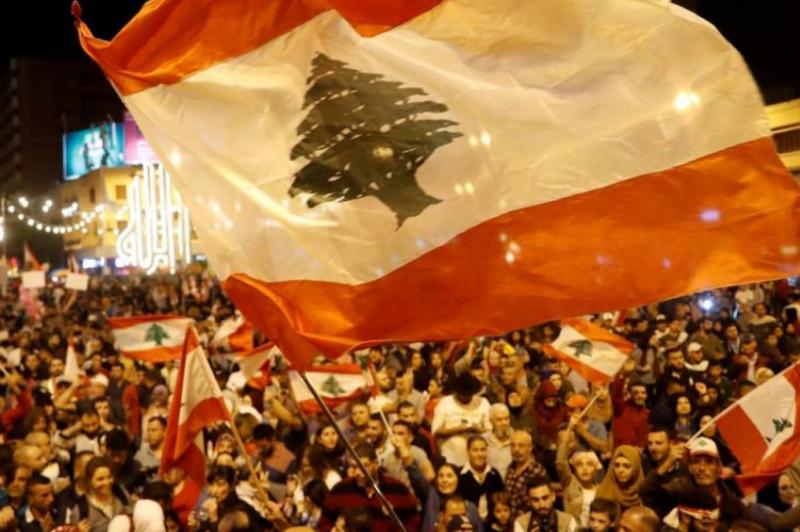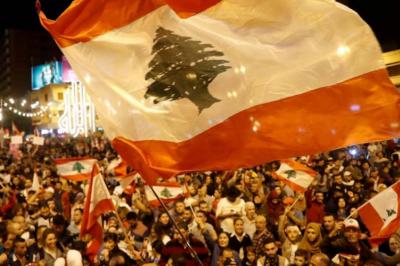One is surprised when sitting with both sides of the past conflict (the right and the left) regarding the deep-seated fears they hold about their previous orientations, despite both having failed in what they did to the Lebanese Civil War, which marks its anniversary on April 13 this year. Of course, Lebanese society continues to suffer from the repercussions of the civil war that still linger in the minds of the remnants of the war generation, according to their entrenched previous affiliations, which insist on their biases despite the end of the civil war. The war concluded with both sides failing, as neither acknowledges its defeat because of the absurdity of the war and its inability to produce an alternative orientation. Everyone prides themselves on what they have done during those tumultuous times and threatens to take up arms again, unwilling to accept the futility of that war and its catastrophic outcome— the destruction, death, and devastation that resulted from a conflict waged among family and within the same household.
For many, particularly those who were harmed, the slogan is clear: "We remember, but it must not happen again." April 13 is a deeply painful memory, associated with sadness and shame for what was inflicted upon Lebanon and its people. This occasion isn't merely a rejection of the war and its experiences but pertains to those who refuse the "other" and operate under the belief that time alone is capable of punishing the other. Certainly, the right's rejection of the remnants of the left, along with the left's denial of those claiming to be remnants of the right, manifests practically in certain institutions through rejection and non-acceptance of the other.
Both sides are in their best intellectual and ideological forms that allow for conflict and scoring points from a distance, yet they refuse to acknowledge their defeat due to their biased perspectives, rooted in the violence that fragmented the left and right in favor of sectarian extremism. This is apparent in media institutions managed by one of the parties in the conflict of the past, despite the fact that everyone can see that even differences in opinion have not faded but rather become pronounced. The consequences often lead to separation and exclusion, where the right does not accept any former leftist and the leftist does not accept the right, often resorting to the most atrocious names as if enacting revenge during the wartime clashes.
This is reflected in both private and public educational institutions that exacerbate the crisis of national coexistence, which is deemed unacceptable since coexistence is linked to a theory imposed on us called "common living," not to a consensus on the concept of citizenship, which is fundamental in dealing with any citizen. Thus, the terms and concepts used by some can be interpreted as covers for a much deeper essence that human and social relations demand in a country that embraces diversity in all its orientations, beliefs, and intellectual affiliations.
However, it must be stated that the civil war did not yield a civic reconciliation that erased the scars of calamities and tragedies; rather, an agreement exists that could explode at any moment depending on the shifting power balance and external ties and interests. The parties that engaged in the war still yearn for their painful past without undertaking any genuine critical review of that period, as if they live on the glories of a painful history to rally what remains of their failed supporters. This perpetuates the presence of these dwindling parties amid the disintegration of previous ideas.
The acceptance of the other in Lebanese society remains absent due to the ideologies and mindsets of those claiming to be right-wing or left-wing, as they are fundamentally based on revenge and retribution. This implies that these orientations nourish and support the rising sectarian ideas that lead to the highest levels of extremism among younger generations. Furthermore, many analysts and political writers express pride in their discourses and discussions reflecting this sentiment.
In contrast to those who have genuinely healed from the wounds of the war and extricated themselves from the muddy reality experienced by the Lebanese components (nationalism, sectarianism, leftism), this healing process is complicated since it is a choice; thus, it cannot be treated by others. It must rely on self, will, conscience, freedom of expression, and a return to the constitution. Embracing human values while respecting sectarian and ideological beliefs are essential to overcoming the toxicity generated by both the right and the left that currently find themselves in a state of decay.




